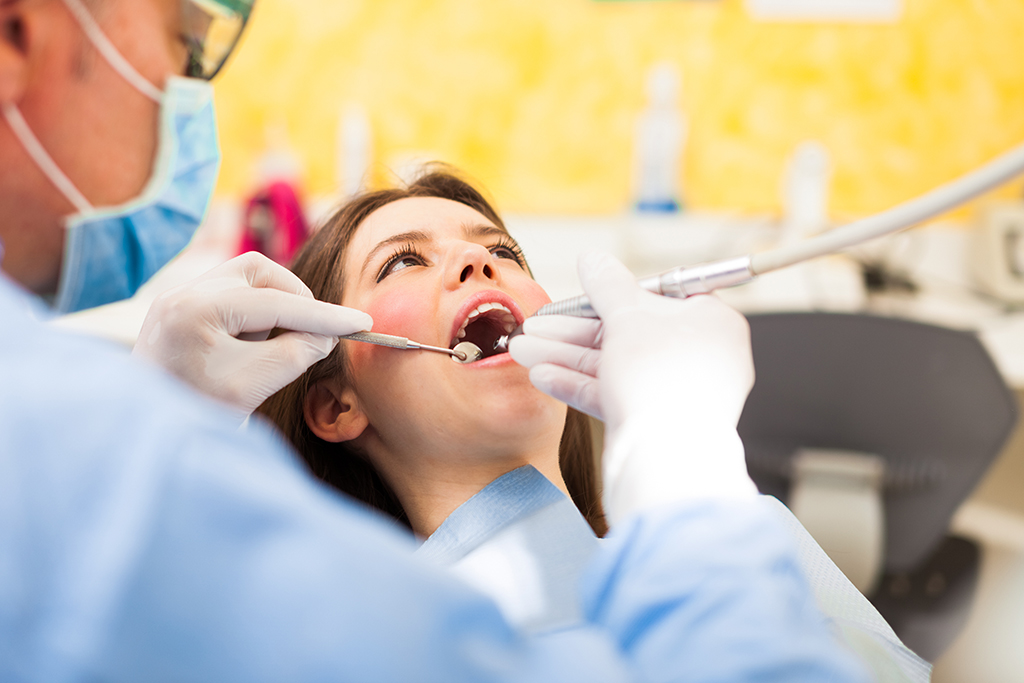
Oral Surgeon | Plano, TX
Photo By Minerva Studio at Shutterstock
At NextGen OMS in Plano, TX, we offer a number of services related to head and neck surgery and treatment. Our oral surgeon performs procedures in and around the mouth and jaw areas. As a skilled dentist and maxillofacial surgeon, Dr. Eftekhari has trained for many years to perform various oral surgeries.
There are many kinds of oral surgery to treat, anything from a loose tooth to two oral cancers. Learn the most common procedures performed by an oral surgeon.
What Are the Most Common Oral Surgeries?
An oral surgeon typically treated issues related to the teeth. Impacted teeth and lost teeth are two of the most common conditions treated at our clinic.
Impacted Teeth
If you’ve ever had issues with your wisdom teeth, this surgery may be familiar to you. The wisdom teeth are the last set of molars to emerge. Often called third molars, they sometimes develop normally. If your jaw is big enough to accommodate them, you may be lucky enough to have no issues.
However, that’s not always the case. Often, one of these molars cannot develop properly. They may also fail to break through the gum line. When this happens they are said to be impacted. Impacted wisdom teeth are caught between the gum tissue and bone. This can cause swelling and pain. Some people also experience infections surrounding wisdom teeth.
Wisdom teeth often damaged nearby teeth. Sometimes, cysts or tumors form and damage your job. Many people choose to have their wisdom teeth removed to avoid any health issues or damage to their other teeth.
Other teeth can also become impacted. Dr. Eftekhari can also remove impacted bicuspids and cuspids.
Tooth Loss
These surgeons may become involved in routine oral care if the case is warranted. dental implants are often used to replace lost teeth to avoid infection and restore natural function. If your dentist refers you to our office, we can treat a variety of issues related to tooth loss and cosmetic dentistry.
When you come to our office, we treat you with respect whether it’s your first visit or you have been here many times. We know that having dental problems can result in pain and discomfort. We treat many types of oral surgery, including tooth removal and issues with the jawbone.
We also treat cancers of the mouth, face and neck areas. If you need reconstructive surgery following the removal of a tumor, Dr. Eftekhari can provide the appropriate services. Other types of dental specialists also perform oral surgery. However, our surgeon has a number of specialties under his belt and can handle most situations that come up regarding your oral surgery needs.
Here are just some of the surgeries we perform for the jaw and teeth:
- Impacted wisdom teeth
- Gum graft
- Maxillofacial surgery
- Root canal
- Jaw and teeth repair
- Tooth implants
- Cosmetic surgery
Who Needs an Oral Surgeon?
When you need jaw or tooth surgery that exceeds the expertise of a general dentist, an oral surgeon may perform the task. For example, we have already discussed how oral surgery relates to wisdom teeth and tooth loss. However, you may also need assistance for conditions related to gum disease. In that case, you may need an oral surgeon to take care of your problem.
How do you know if you need an oral surgeon? Generally, your dentist will refer you to NextGen OMS if you need the expertise of a surgeon in Plano, TX. If you have any questions about our services, just contact our offices and we will be more than happy to help you with your questions. We want you to feel comfortable and 100% confident in the care that you will receive at our office.
How Can You Prepare for Oral Surgery?
The doctor or our staff will prepare you prior to the procedure. However, it’s a good idea to come with any questions you have regarding the work to be done. Follow both the instructions of your dentist and Dr. Eftekhari prior to the procedure.
Make sure your space at home is clean and sanitary. You will need to rest as much as possible for a few days after the surgery. Set up pillows on the bed to make it possible to recline without lying down the whole way. This may be more comfortable and can help aid the healing process.
We will provide instructions if there’s anything specific you need to do prior to your oral surgery. Our oral surgeon will hold a consultation with you prior to your procedure as well. The amount of time that you spend in the surgery depends on the procedure to be done and how complicated your case is specifically.
Make sure that you have a ride home following the procedure. We will also discuss the type of anesthesia to be used and any other details about the procedure that can help you prepare ahead of time.
What Happens After the Procedure?
Your oral surgeon will give you specific instructions for the care of the area where the surgery took place. Refrain from drinking or smoking following the surgery. This can cause the healing process to slow down and can otherwise impede a full recovery. You can use an ice pack to help with the pain and inflammation in the area.
Typically, you will be asked to rinse your mouth with salt water to kill any bacteria. This can be done every few hours. The doctor will instruct you when it’s safe to brush your teeth or otherwise care for your oral hygiene.
Follow Dr. Eftekhari’s instructions and call our office if you have any questions at all. The recovery time may take anywhere from a few days to a longer period; it all depends on the type of procedure we perform.
Contact NextGen OMS today with any questions you have regarding our oral surgery and other services.


